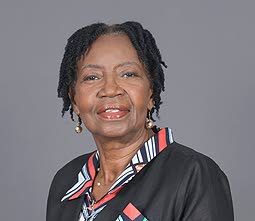Historian: Education system is elitist

The exams that were put in place to assess primary school students for the secondary school system have been hierarchical and perpetuated an elitist system.
So said Dr Rita Pemberton, a panellist in a webinar discussion held by the UWI School of Education on Wednesday morning.
The session was titled “Will 11 plus selection and placements always be a part of our future?”
The webinar session came on the heels of the Secondary Entrance Examination (SEA), which was highly debated this year, given the challenges presented to standard five students due to the covid19 pandemic.
The SEA, originally set for April 2, was rescheduled to August 20, after schools were shut as a preventive move against the spread of the virus.
Pemberton, a former senior lecturer in history at UWI, said the exam process needed reform, as it was a highly competitive race based on inequity and inequality.
She said, “The system for selection has undergone several reincarnations where there have been just name changes and some tinkering here and there.
“The perception of schools and education is an important factor in order to establish a system that is satisfactory to all. We inherited a system from the colonial period that was elitist. It was there to serve the upper class.”
Pemberton said the system promoted the idea of prestige schools and the notion of going to such an institution remained highly revered.
She said this cultural behaviour, which must change, had indirectly labelled other schools as inferior and unable to execute sound teaching and learning experiences.
“The prestige schools have become self-perpetuating, because generations have passed through, so parents would want their children to go there. And those who did not attend prestige schools now aspire to have their children go there.
“Primary schools have now become a part of the hierarchy system and are assessed by their performance in the exams for the highest number of passes to prestigious secondary schools. They now fall into a prestige primary school system which now have a flood of applicants.”
Pemberton said the transition from the college examination to the Common Entrance exam to the SEA continued to have commonalities. These included over-emphasising the need to pass the test; rote learning based on practice test and past papers; promotion of anxiety and depression; and no consideration for late developers.
Pemberton added that there was a lack of transparency in school placements, as clause five of the Concordat of 1960 on denominational schools, was being abused by people of societal influence to get their children into the prestige schools.
Created under the then Ministry of Education and Culture, clause five stipulated that , “The Principals of Assisted Secondary Schools will make available a minimum of 80 per centum of the First Form entry places to those who, by passing the test, qualify on the results of the Common Entrance Examination for free secondary education. The Principals will be represented on the panel of examiners to be set up to administer the test. The Principals will be free to allocate up to 20 per centum, the remaining places as they see fit provided normally that the pass list of the Common Entrance Examination serves to provide the pupils.”
Pemberton’s remarks were supported by another panellist. Dean at the faculty of humanities education Dr Heather Cateau said the pandemic has highlighted the inequities in the education and examination systems.
She said, “Students were preparing for the examination under a variety of different circumstances. Some were able to access online platforms, while many could not. Questions arose as to whether the children had been fully prepared in school.
“The SEA examination, at its core is really a significant colonial monument. It has taken on the character of a recurring historical marker that evokes strong emotions which stays with us throughout our entire lives.”
Meanwhile director at school of education Professor De Lisle noted that the elitist system which has created a “good school,” “bad school” ideology has undermined the learning process and contributed mental health issues.
He added that negative teacher and parent combinations also leads to helplessness, anxiety, mal-adaptive learning, depression and decreased motivation.


Comments
"Historian: Education system is elitist"